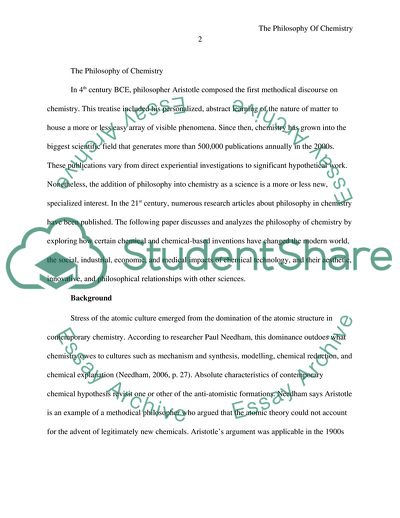Cite this document
(The Philosophy of Chemistry Term Paper Example | Topics and Well Written Essays - 1750 words, n.d.)
The Philosophy of Chemistry Term Paper Example | Topics and Well Written Essays - 1750 words. https://studentshare.org/chemistry/1855888-write-a-poem-about-chemistry-or-write-about-the-philosophy-of-chemistry
The Philosophy of Chemistry Term Paper Example | Topics and Well Written Essays - 1750 words. https://studentshare.org/chemistry/1855888-write-a-poem-about-chemistry-or-write-about-the-philosophy-of-chemistry
(The Philosophy of Chemistry Term Paper Example | Topics and Well Written Essays - 1750 Words)
The Philosophy of Chemistry Term Paper Example | Topics and Well Written Essays - 1750 Words. https://studentshare.org/chemistry/1855888-write-a-poem-about-chemistry-or-write-about-the-philosophy-of-chemistry.
The Philosophy of Chemistry Term Paper Example | Topics and Well Written Essays - 1750 Words. https://studentshare.org/chemistry/1855888-write-a-poem-about-chemistry-or-write-about-the-philosophy-of-chemistry.
“The Philosophy of Chemistry Term Paper Example | Topics and Well Written Essays - 1750 Words”. https://studentshare.org/chemistry/1855888-write-a-poem-about-chemistry-or-write-about-the-philosophy-of-chemistry.


